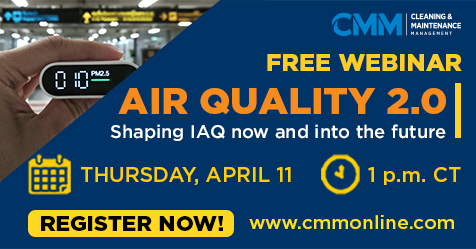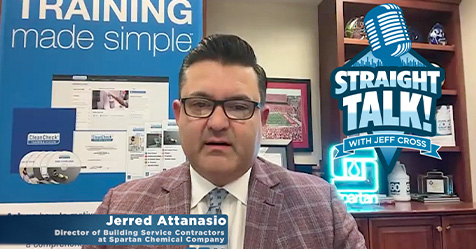Running a cleaning business is hard work.
Your employees require on-the-job training, their shifts often occur at hours when accidents are more likely to happen, they use chemicals that can be dangerous when applied incorrectly and the facilities they work in may not all be in the best condition.
Should you not take the time to address and remove these and other risks specific to your business, your lifetime of work could be lost in just a few minutes.
Just like running any management process, it takes planning, discipline and an eye on budget to establish the right risk and insurance strategy.
With the following steps, you can make sure your business is protected:
- Recognize the various ways you can suffer loss
- Follow the guides for buying insurance economically
- Organize your insurance management program
- Get professional advice.
Recognize Your Unique Risks
There are a number of basic insurance types that every business owner should consider, but each industry has its own unique risks that require the right kind of coverage.
Every industry is different and, according to A.M. Best Company Inc., a leading provider of insurance information, the top risks for cleaning and maintenance companies are automobile liability, workers’ compensation, fire and general liability for on-premise operations.
• Automobile liability
Many cleaning companies are required to provide their services after the regular working day is over, so second and third shift workers often find themselves driving on dark streets, sometimes in bad weather.
Whether the cars are owned by the cleaning company or the employees themselves, the liability is the same.
• Workers’ compensation
No surprise here, but cleaning can be a physically taxing — even dangerous — job.
Common issues include strained backs from improper lifting, falls on slippery surfaces, physical or respiratory exposure to chemicals and falls during window cleaning.
There are additional industry-specific risks for clients such as healthcare facilities.
• Fire and extended coverage
Some types of cleaning companies face greater risks than others.
These higher risk companies typically include those who use more powerful cleaning chemicals or who work in aging buildings where wiring and fire control standards may fall short of today’s requirements.
• General liability
Cleaning companies need to be covered not just for risks at their own facilities, but for potential damages their services could cause at clients’ premises.
Damages are wide-ranging and need not be significant to make you glad to have had coverage, including stolen items — you can obtain coverage for “mysterious disappearances” — broken personal effects or furniture, fire, disturbed landscaping and soiled carpeting.
It’s an intimidating thing to sit down and think about all of the risks your company faces, but there are some very basic steps you can take to make sure those risks don’t get in the way of your success.
Study Insurance Costs
Before you purchase insurance, investigate the methods by which you can reduce the costs of your coverage.
Be sure to cover the following points:
- Decide what perils to insure against and how much loss you might suffer from each
- Cover your largest loss exposure first
- Use as high a deductible as you can afford
- Avoid duplication of insurance
- Buy in as large a unit as possible
- Review your insurance program periodically to ensure that your coverage is adequate and your premiums are as low as possible.
Have A Risk Management Plan
To manage your insurance program for the best possible coverage at the lowest possible cost, you will need a definite plan that undergirds the objectives of your business.
Here are some suggestions for good risk and insurance management:
- Write down a clear statement of what you expect insurance to do for your business
- Select only one agent to handle your insurance, as having more than one may weaken responsibility and lead to coverage gaps
- If an employer or partner is going to be responsible for your insurance program, be sure he or she understands the responsibility
- Do everything possible to prevent losses and to keep those that do occur as low as possible
- Don’t withhold important information about your business and its exposure to loss from your insurance agent
- Don’t try to save money by underinsuring or by not covering some perils that could cause loss, even though you think the probability of that loss occurring is very small
- Have your property appraised periodically by independent appraisers, which informs you of your exposures and allows you to prove more conclusively what your actual losses are if any occur.
You know that no one can predict the future.
This can be exciting, as your company’s next big customer could walk through your doors in the next five minutes.
But, the future can also be terrifying, as you are one lawyer’s phone call away from losing everything you’ve worked so hard to build.
That is, unless you’ve taken steps to protect yourself.
The above steps will help you on the way to the right protection, and a number of other business insurance resources are available all over the Internet.
Once armed with the proper knowledge — remember that, if the risk is small, the premiums also will be small — insurance buyers should ensure as broad a possible range of coverage options by working with an independent business insurance agent whose interests can be more aligned with yours as a business owner.


